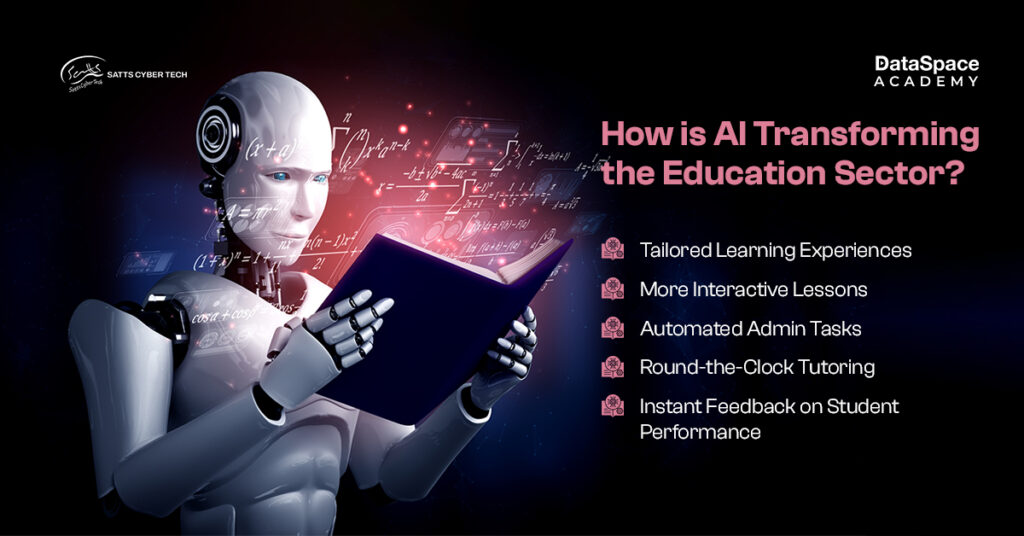From transforming industries to changing daily life, AI's impact is undeniable. The
impact of AI on education is proving to be a revolutionary one - empowering teachers with smarter tools and learners with a more personalised and effective learning journey.
This insightful blog focuses on AI’s capabilities in transforming education and how it can shape the future of learning.
The global AI in the education market is projected to
grow at a CAGR of 31.2% from 2025 to 2030. Tools like AI tutors, adaptive learning platforms, and automated grading are helping educators tailor lessons to individual student needs. The application of Artificial Intelligence in education is all about fostering more efficiency, personalisation, and interests.
By using technologies like Natural Language Processing (NLP), and machine learning, AI can analyse student data to identify their strengths, weaknesses, and learning patterns. This also enables teachers to customise content, ensuring every student gets the support they are looking for.
For instance, if a student struggles with math but excels in literature, AI helps in adjusting the curriculum to provide more math practice while keeping literature materials challenging. This automated strategy offers students a seamless learning experience.
And, it doesn’t stop there—AI-powered tools can also automate grading, freeing up teachers to focus more on student interaction and creative teaching strategies.

Well, that’s all just the tip of the iceberg. Here is a detailed take on the revolutionary impact of
AI in the field of education in India.
While the positive impact of AI cannot be undermined, it comes with its certain share of disadvantages. Here is a sneak peek:
The impact of AI in education is seemingly promising for both students and trainers. Additionally, the demand for interactive AI learning tools and platforms will gain significant traction, sparking the demand for proficient professionals in machine learning and AI. Enroll now with DataSpace Academy’s top-rated
machine learning certification course.

 Well, that’s all just the tip of the iceberg. Here is a detailed take on the revolutionary impact of AI in the field of education in India.
Well, that’s all just the tip of the iceberg. Here is a detailed take on the revolutionary impact of AI in the field of education in India.
